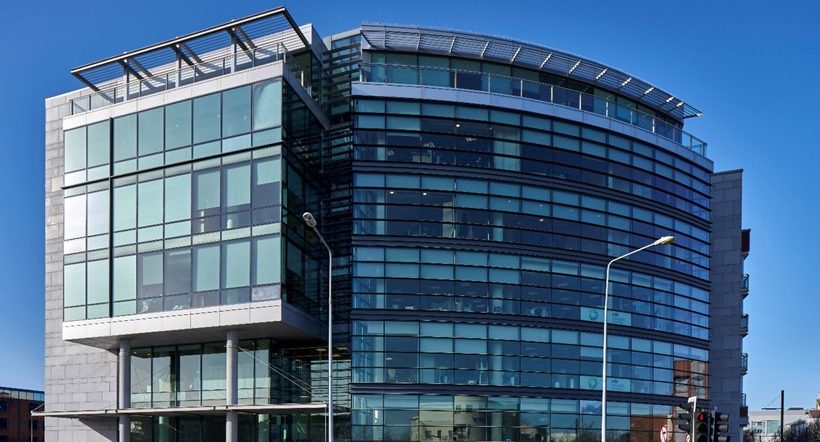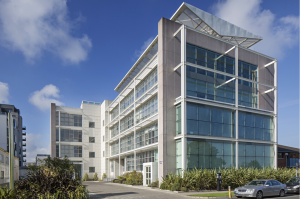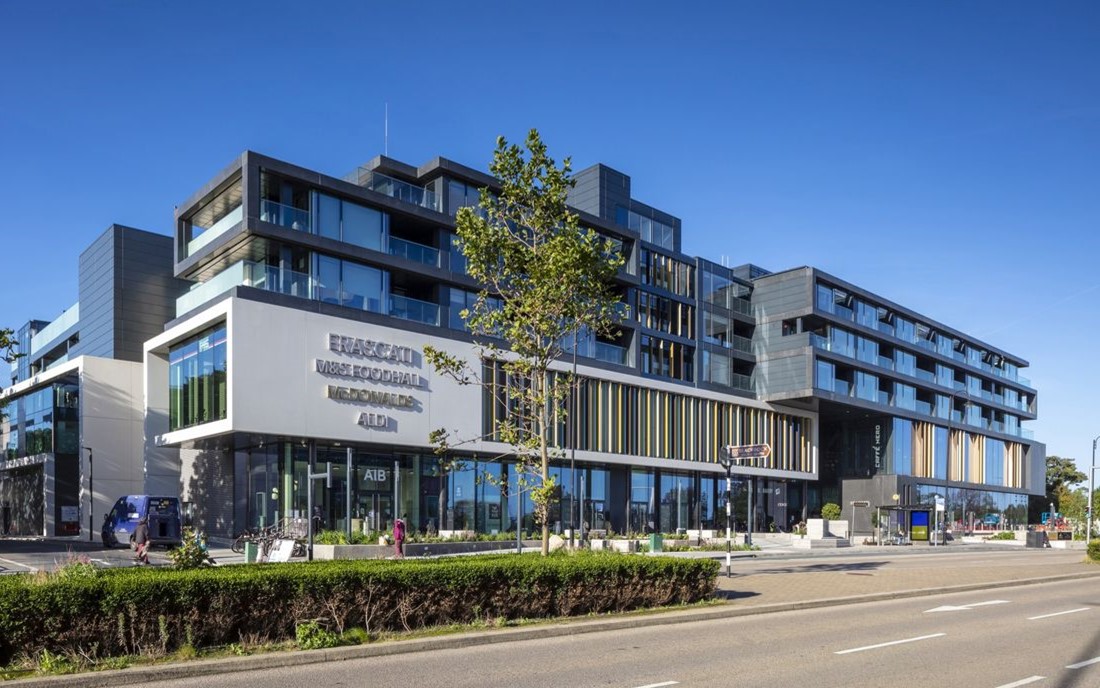June 2024
June 2024
The recent decision by the European Central Bank to reduce interest rates may mark the turning point in the property market cycle.
The Irish commercial property market has continued to experience a subdued level of activity and turnover in Q1 2024 fell to its lowest level since 2012. The market is now in its fifth year of value decline with the MSCI Ireland Capital Value index down over 25% since 2019.
Despite this, some analysts are forecasting that values are likely to bottom out during the second half of 2024. Distressed assets are starting to come to market at levels opportunistic buyers are prepared to transact at. In many cases, it is now possible to buy buildings in good locations at prices which are significantly lower than the build cost.

Rental growth
Another fundamental driver of investment values is the prospect of rental growth. This in turn is driven by the balance between the supply of space and occupier demand.
After a weak performance during 2023, the ESRI is forecasting that the Irish economy will return to more normal rates of growth during 2024, with GDP expected to grow by 2.5%. This more positive environment, coupled with full employment, rising real incomes and healthy public finances leave Ireland with one of the strongest expected growth rates in the EU. This growth underpins occupier demand across all sectors.
Office sector
A tumultuous market in recent years, the office sector has seen a contraction in demand, with take up during 2023 totalling 1.4mn sq.ft, the lowest level in ten years. This coincided with a spike in new office development completions as well as many large tech operators seeking to offload their office space as their growth faltered. This resulted in the vacancy rate in Dublin rising to over 16% and rental levels softening.
Looking ahead, the recent cessation of new office developments will inevitably result in a scarcity of new, grade A space as occupier demand absorbs the higher quality accommodation. The general oversupply masks a lack of future proofed sustainable buildings, with just 15% of the available space carrying an A energy rating. It is this category of space which occupiers are focusing on as organisations strive to meet various sustainability targets.
Occupier demand is picking up as evidenced by the fact that there are over 600,000 sq. ft. of new office lettings in train at present, with occupiers such as Stripe, BNY Mellon, EY, APC and Deloitte in the process of securing new space.

Retail property sector
For years, there has been little development in the retail property sector as it adjusted for challenges including the rise of online sales and the pandemic. Therefore, there is now a low stock of retail space available in quality locations.
As retailers have adjusted to online selling as well as instore, their sales have continued to grow as rents have stabilised, albeit at levels well below those pre-pandemic. Looking ahead, we believe there will be growth in the market as retailers compete for a reduced supply of available space in the better locations.

Industrial sector
This sector remains the strongest in terms of the balance between supply and demand, with occupiers experiencing growth due to a range of factors including Brexit and online retailing.
Rental values have risen steadily due to a scarcity of quality space, due to developers remaining measured in the quantity of new projects they undertake as building costs continue to grow.
The return of inflation as a feature of the economic landscape will drive investors to seek assets which can hold their value in real terms. Property is a real asset and has been proven in the past to rise in value over time to match inflation.
Private capital and international institutional investors have started to identify buying opportunities leading to some transactional momentum returning.
Market transactions completed since January include:
- 40 Molesworth Street, Dublin 2 – office investment with a guide price of €40mn, a sale has reportedly been agreed at a yield of 5.2%
- Blackpool Shopping Centre, Cork – transacted at €49.5mn
- Gulliver Retail Park – sold to Irish private investor for c.€28mn
- Mahon Retail Park – sold to a French institutional investor for €50mn
There have been a number of other high-profile properties on the market over the last six to nine months including, Blanchardstown Shopping Centre, The Square, Tallaght and The Ronan Portfolio. These sales have attracted international buyers, and as transactions take place over the next few months, the market will have a range of benchmark deals to guide future pricing.

Conclusion
The market cycle is now entering a phase of recovery as distressed assets are transacted at values which are sufficiently low to attract buyers who have been disinclined to acquire until now.
Those investors who are in a position to move early will secure the most attractive terms, and as confidence rebuilds, these opportunistic buyers will be followed by a wider range of investors. It is noteworthy that the Gresham House Commerical Property Fund portfolio enjoyed a valuation uplift in Q2, the first such uplift in eight quarters.
Based on the above it is reasonable to conclude that as confidence builds and investors are drawn to the relative value which well-let commercial property offers, 2024 is likely to mark the turn of the cycle.
Any views and opinions are those of the Fund Managers, this is not a personal recommendation and does not take into account whether any financial instrument referenced is suitable for any particular investor.
Capital at risk. If you invest in any Gresham House funds, you may lose some or all of the money you invest. The value of your investment may go down as well as up. This investment may be affected by changes in currency exchange rates. Past performance is not necessarily a guide to future performance.
The above disclaimer and limitations of liability are applicable to the fullest extent permitted by law, whether in Contract, Statute, Tort (including without limitation, negligence) or otherwise.
 Gresham House
Specialist asset management
Gresham House
Specialist asset management




